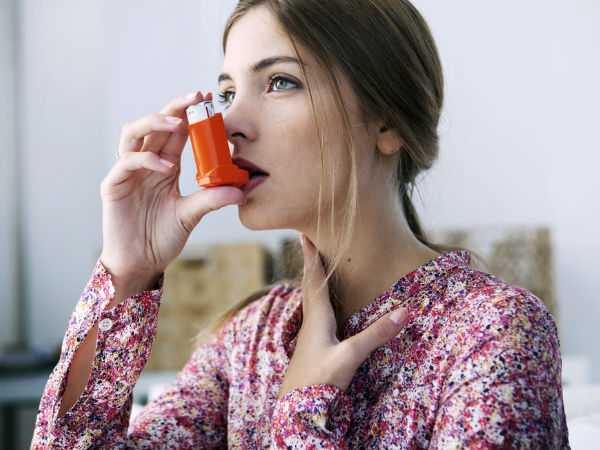Effective Strategies to Stop Wheezing and Breathe Freely Again
Wheezing: Causes and Symptoms
Wheezing is often characterized by a high-pitched whistling sound when you breathe, and it can be caused by various factors. To effectively address wheezing, it’s crucial to understand its underlying causes and recognize the common symptoms associated with it.
Common Causes of Wheezing:
Asthma:
One of the most common causes of wheezing is asthma, a chronic respiratory condition that leads to inflamed airways and narrowed passages.
Allergies:
Allergic reactions to pollen, dust, pet dander, or certain foods can trigger wheezing in sensitive individuals.
Respiratory Infections:
Infections like bronchitis or pneumonia can lead to wheezing, especially during coughing fits.
Common Symptoms of Wheezing:
Audible Whistling Sound during Breathing
Shortness of Breath
Chest Tightness
Coughing
Recognizing these symptoms and understanding the potential causes is the first step in effectively addressing wheezing. In the upcoming sections, we’ll explore a range of strategies and remedies to help you breathe freely once more.
Natural Remedies to Stop Wheezing
If you’re looking for natural and holistic approaches to alleviate wheezing, you’re in the right place. These remedies can complement medical treatments or serve as initial steps to reduce wheezing episodes.
Deep Breathing Exercises:
Practicing deep breathing techniques, such as diaphragmatic breathing, can help improve lung function and reduce wheezing. It encourages the expansion of the lungs and better oxygen exchange.
Steam Inhalation:
Inhaling steam from a bowl of hot water can soothe irritated airways and reduce wheezing. Add a few drops of eucalyptus or tea tree oil for added relief.
Hydration:
Staying well-hydrated is essential for maintaining respiratory health. Proper hydration helps keep mucus thin and less likely to obstruct airways.
Medications for Managing Wheezing
While natural remedies can be effective, some situations may require medications to manage and alleviate wheezing symptoms. It’s important to consult a healthcare professional for a proper diagnosis and treatment plan tailored to your specific needs. Here are common medications used for wheezing:
Bronchodilators:
Short-Acting Bronchodilators:
These provide rapid relief by relaxing and opening the airways during a wheezing episode.
Long-Acting Bronchodilators:
These are used for long-term control of wheezing and may be prescribed alongside other medications.
Inhaled Corticosteroids:
These anti-inflammatory medications help reduce airway inflammation, making it easier to breathe. They are often used for managing chronic conditions like asthma.
Lifestyle Changes for Wheeze-Free Living
Beyond medications and natural remedies, making certain lifestyle changes can significantly reduce the frequency and severity of wheezing episodes. Here are some lifestyle adjustments to consider:
Smoking Cessation:
If you smoke, quitting is paramount. Smoking irritates the airways and worsens wheezing.
Allergen Management:
Identify and reduce exposure to allergens that trigger wheezing. This may involve using allergen-proof covers on pillows and mattresses or investing in air purifiers.
Regular Exercise:
Engage in regular physical activity to improve lung function and overall health. Consult your healthcare provider for suitable exercises.
When to Seek Medical Attention
While mild wheezing may often be managed with home remedies and lifestyle changes, there are situations where seeking immediate medical attention is crucial:
Severe Wheezing or Shortness of Breath:
If your wheezing is severe and accompanied by significant shortness of breath, especially if you struggle to speak or have bluish lips, seek emergency medical care.
Sudden Onset Wheezing:
If you’ve never experienced wheezing before and it suddenly occurs, consult a healthcare provider.
Wheezing in Children:
Children with wheezing should be evaluated by a pediatrician, as the causes and treatments can differ from adults.

Preventing Wheezing: Long-Term Strategies
Prevention is often the key to maintaining lung health and minimizing wheezing episodes. These long-term strategies can help you breathe freely and reduce the risk of wheezing:
Regular Check-Ups:
Schedule regular check-ups with your healthcare provider to monitor your respiratory health. Early detection of potential triggers can lead to effective preventive measures.
Vaccinations:
Stay up-to-date with vaccinations, particularly the annual flu shot and pneumococcal vaccines, to reduce the risk of respiratory infections.
Allergen Avoidance:
Identify and avoid allergens that trigger wheezing. This may include creating an allergen-free environment at home and work.
Expert Insights on Wheezing Management
To gain deeper insights into managing wheezing, let’s turn to medical professionals who specialize in respiratory health. Here are some expert tips and recommendations:
Dr. Emily Patel, Pulmonologist:
“Maintaining a healthy lifestyle with regular exercise and a balanced diet is crucial. Additionally, work with your healthcare provider to create a personalized asthma action plan.”
Dr. Sarah Collins, Allergist:
“Identifying and managing allergens is essential. Allergy testing can help pinpoint specific triggers, allowing for targeted treatment and avoidance strategies.”
FAQs: Your Common Wheezing Questions Answered
Q1: Can wheezing be a sign of a severe medical condition?
A1: Yes, wheezing can indicate underlying health issues, including asthma, allergies, bronchitis, or even more serious conditions. It’s essential to consult a healthcare provider if you experience wheezing, especially if it’s severe or persistent.
Q2: Are there any home remedies for wheezing?
A2: Yes, some home remedies can help alleviate wheezing, such as deep breathing exercises, steam inhalation, hydration, and herbal teas. However, it’s crucial to seek professional advice for a comprehensive treatment plan.
Q3: Is wheezing more common in children or adults?
A3: Wheezing can occur in both children and adults. In children, it may be due to respiratory infections or allergies. In adults, it can result from various factors, including asthma and environmental triggers.
Q4: Can wheezing be triggered by stress?
A4: Yes, stress can exacerbate wheezing in individuals with underlying respiratory conditions. Stress-reduction techniques like meditation and yoga can help manage this aspect.
Q5: What should I do during a severe wheezing episode?
A5: If you experience severe wheezing, shortness of breath, or bluish lips, seek immediate medical attention. These can be signs of a medical emergency.
Conclusion
Wheezing may be a challenging condition, but with the right knowledge, strategies, and professional guidance, it’s manageable. This comprehensive guide has provided insights into understanding wheezing, natural remedies, medications, lifestyle changes, and expert advice on wheezing management.




